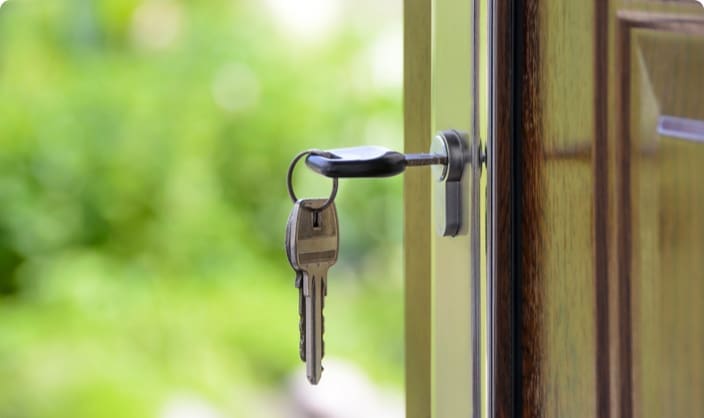The Ultimate Moving Home Checklist
You’ve found your new home and sorted out the mortgage where required. Your solicitors have carried out all or a majority of the legal work involved, and you now find that you are drawing close to the actual day of moving. This checklist for moving house is designed to help you reduce the moving stress by planning ahead.
Moving home is listed as one of the more stressful things you can do in life and with so much to do and remember whilst still trying to juggle your usual everyday life, it is no wonder. To try and help, we’ve put together the ultimate moving house checklist for all those things that need doing to make the day of your move go as smoothly as possible.
Two months before moving:
Get mentally prepared
Whilst there is little that you physically need to do at this stage it is worthwhile getting yourself mentally prepared. This may be an exciting time for you to move, albeit we all move for different reasons, but much still has to be dealt with on a practical level.
Check paperwork
Hopefully you will have had your mortgage offer by now if you are requiring a mortgage for your purchase, together with many other important documents for your solicitor. Ensure you have read these and asked any questions may have. It may be too late leaving this until after you’ve moved.
Six weeks before moving:
Discuss a moving date
This may already have been discussed earlier in the proposed purchase. You also may still not be in a legal position to actually exchange and set a defined date but, everyone in the chain, regardless of how long the chain is, needs to be on the same page.
What you have in mind may differ to someone else and restrictions on when it can be done due to things such as work can play its part i.e. a teacher may be restricted when they can have time off work to move home.
Speak to removal firms or to van hire companies
Remember, it’s not just you on the move and many others may have the same date in mind. Also factor in that Fridays are still the most popular day of choice for people moving. It’s worth getting quotes and even booking your chosen firm if in a position to do so.
Book time off work
Don’t leave this to the last minute. If others are on annual leave at the time you need to move, you may find it difficult for your employer to approve it. It can also leave them in a difficult position knowing that you need the time off. Also think about the situation it may leave your work colleagues in and the workload for them, if approved. If you work for yourself, try to let any relevant clients know of your plans.
One month before moving:
Declutter
It’s amazing how much stuff we accumulate over the years. You never know when those trousers will come back into fashion! You may be surprised with how much you have to take with you so, take this opportunity to really think about the things you need and get rid of the stuff you don’t. Sell items online or take them to a charity shop if they are in a good condition rather than simply taking them to the local refuse centre.
Order packing boxes
If not being done by your chosen removal company, you’ll need to ensure you have adequate boxes to pack up your items. Also ensure you get suitable packing materials such as bubble wrap etc to protect those delicate items.

Arrange insurances
Hopefully these will already be in situ but if not, ensure you get these done. Do not assume all will be ok and ready for when needed. For most, building insurance on the new property will be your responsibility on the day of exchange and items such as life assurance is not always instant especially if the insurer needs to contact your GP.
Two weeks before moving:
Start packing
Begin with your nonessentials at this time and remember you may have things in your garage, shed and garden that need packing too. Remember to write on the boxes what they contain and where they are to go in your new home.
Mail redirection
Contact a mail redirection service ahead of time. You don’t want important items delayed being received or worse still not being received at all when you’ve moved.

Reduce the food in your freezer
What’s that at the back of the bottom drawer of your freezer that you put in there ages ago and have forgotten about!? Taking frozen food with you can be difficult so run down your freezer with your meals over the next couple of weeks.
One week before moving:
Inform companies of your move date
It’s likely now that you have exchanged contracts and a definitive move date has been set. Ensure you advise people in regard to finances and medical records together with your local council for items such as your council tax.
Inform family and friends
You will likely have lots to do when you move in so tell you friends and family now. You never know, they may send you a nice welcoming new home card and present.
Child (and pet) care
Make arrangements for someone to look after your children and/or pets on the day of the move. If it’s someone your pets are not familiar with ensure they get chance to meet before the day as it can be very unsettling for them.
One/Two days before moving:
Finish packing
Still leave out the very last minute items but try to have everything else done by this time. You may find life a little bit of a struggle not having some things to hand but it will be worth it when the day comes. Remember to ensure all is labelled with what is inside and where it is to go in your new home.
Moving day survival kit
Prepare some boxes for your moving day essentials. Even on the day some things may be needed. Have a box with items such as tea; coffee; loo roll to hand. You may not complete until mid afternoon so have some basics to hand.
Fully empty and defrost your freezer
Get your frozen food ready to be put in in cooler boxes for transportation.
Write a list for the new owners
Be considerate and make a list of things you feel the new owners may need to know. Think of those things you would have found useful knowing when you moved in such as where the main stop cock is or the fuse box. Make labels for things including any keys.
Charge your phone
You may find you will be using your mobile phone more than usual on the day of your move and the last thing you want is to run out of battery and have no means of charging it.
The day of the move:
Protect the flooring
You may be moving out today but it’s likely someone is moving in. Lay floor coverings to protect carpets etc from your footfall and those of your removal firm if using. This is especially thoughtful if it is a rainy day.
Strip your beds
Your last night sleeping in your current home so strip your beds as soon as possible when you wake and get the sheets and duvets packed.
Disconnect washing machine and dishwasher
You’ll likely be taking these with you but ensure this is done and of course turn off the water supply to the appliances first! Make sure you also find your instruction manuals to help you when you set them up on the other side.
Have a quick clean
Give your home a quick “spring” clean. Don’t go overboard but ensure things are well presented for the next person moving in. This also gives you the opportunity to have one last check of every nook and cranny for anything you may have left behind.
Be patient
The actual day of your move can be frustrating as you wait for the solicitor to confirm completion has actually taken place and the new property is legally yours. Funds need to be in the vendors possession (or their solicitors) for this to be confirmed and it can be as late as 3 pm for this to happen. You may be sitting around before you can collect the keys to your new home, but it will happen.

After moving in:
Take meter readings
Ensure you do this as soon as possible. Keep records and contact the utility companies.
Check the property over
Be sure to have a look around to check for leaks or damages.
Change locks
This can be expensive but something that is not considered by many. If buying a home that has been previously lived in, changing your locks is a security conscious thing to do to ensure no one else has a key to access your home without your knowledge.
Settle your bills
They’ve helped you move so ensure for anyone that you still owe money to for their services that these are paid.
Relax and Enjoy
You’re in your new home. For a while the hard work still continues as you need to unpack and get things organised but, this was what all the planning in advance was for so make yourself a drink, relax and enjoy!
Useful links

Mortgages
We’ll oversee your mortgage application from beginning to end and will keep you updated throughout the process. If you’re considering a remortgage or are a first-time buyer, moving home or looking at a buy-to-let mortgage, it doesn’t have to be complicated – let us do the hard work for you.

Calculators
These calculators are great for getting a quick guide, but if you want a completely accurate assessment then you should talk to one of our professional advisors.

Loans
For the last 20 years, we’ve been helping all sorts of people from all walks of life find the loan they need. Whether it’s for a business investment, home improvement, or to consolidate other debts, you can turn things around for the better.
